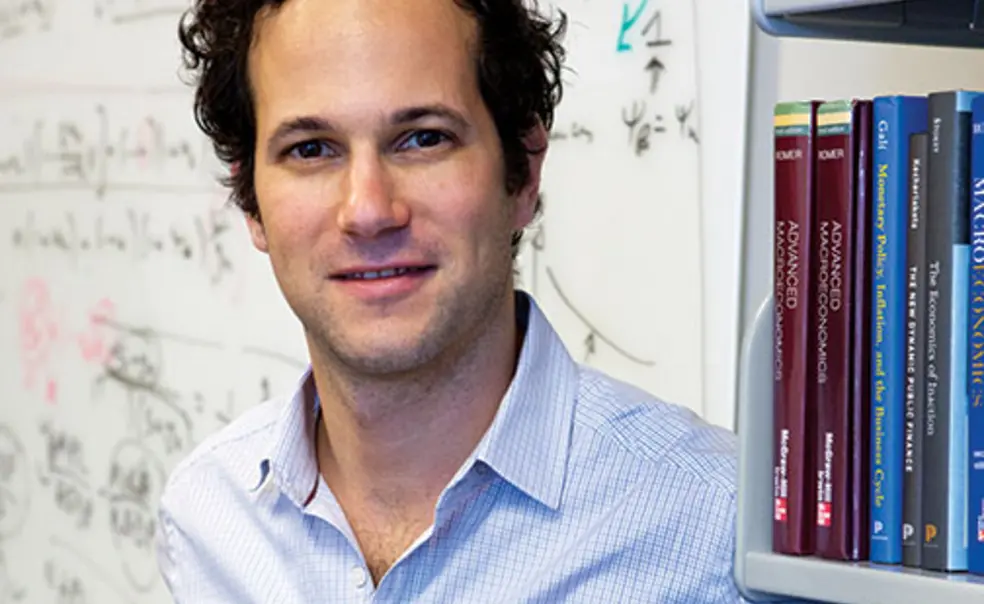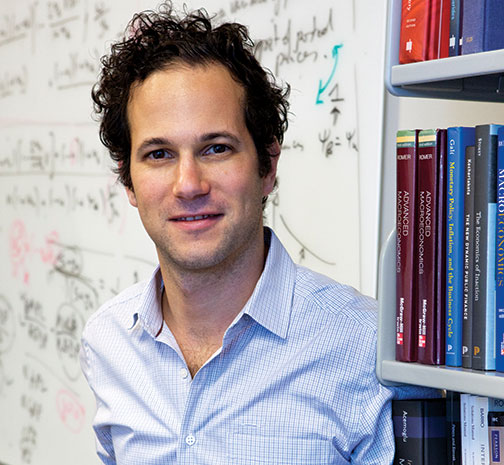Economics: Making a Move
Greg Kaplan explains what moving — and staying put — means for the economy
Your parents might not approve, but Professor Greg Kaplan says going back to your childhood bedroom can be good for your career.
Using survey data on 1,500 men in their 20s, Kaplan found that moving back home after a job loss not only served as a short-term safety net, but also preserved long-term earning potential. Men who lost their jobs and did not move back home made 25 percent less six years later than men who had kept their jobs. But those who did move back home did not lose ground.
When people live with their parents, “they’re not in such a rush to take the first opportunity that comes along in order to pay their bills,” Kaplan says. They can wait and look for the right job.
Kaplan also found that the decline over the last two decades in interstate migration — moving from one state to another — is not a bad sign for the economy, though scholars had perceived it that way. Economists had worried the decline meant workers no longer were able to go where the jobs were.
But Kaplan concluded that several elements of life in the 21st century make it less necessary for people to move to find work. At one time, for example, people had to be in Detroit to work for an automobile company, but today “the mix of available jobs differs less from state to state than it did 20 years ago, and the income a worker can earn in a particular occupation depends less than before on what state she works in,” Kaplan writes.
The U.S. economy today relies less on manufacturing and more on knowledge-based work such as graphic design, which can be done from anywhere, Kaplan points out. And people have better access to information, so they can research a new place and learn whether they like it before deciding to move.













No responses yet